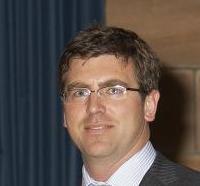
Project Summary:
The most common brain cancer, high grade glioma, still has a terrible prognosis of only 12 months and requires better ways to monitor treatments and make clinical decisions. These decisions can include whether and when to instigate interventions such as specialised imaging, chemotherapy or repeat surgery. Angiogenesis, the process of tumour blood vessel formation and growth is known to be extremely active in high grade brain tumours. The main current method of monitoring tumour progression currently is contrast-enhanced MRI but this has limitations, especially with the use of newer drugs such as anti-angiogenesis inhibitors, that reduce the appearance of enhancement. Circulating endothelial cells (CECs) are blood vessel lining cells circulating in the bloodstream that may correlate with the degree of blood vessel activity in the tumour. The aim of this project is to determine if the level of CECs determined by a simple blood test, can provide an accurate “biomarker” for either the prognosis and or progression of gliomas. We plan to recruit 200 patients with high grade gliomas and take blood at at least six time points during the course of their illness. The CEC level will be assessed by flow cytometry in the laboratory. Clinical data will be collected concurrently, with the assistance of the Biogrid initiative for clinical database analysis. CEC levels will be analysed to determine if there is a statistically significant correlation with ‘true’ tumour burden, response to treatment, MRI appearance, tumour grade and patient outcome. If valid, this test could become a valuable, simple, cost-effective tool to help guide more accurate treatment decisions in patients with brain tumours and to guide future clinical trials.


 The Brain Foundation is the largest, independent funder of brain and spinal injury research in Australia. We believe research is the pathway to recovery.
The Brain Foundation is the largest, independent funder of brain and spinal injury research in Australia. We believe research is the pathway to recovery.